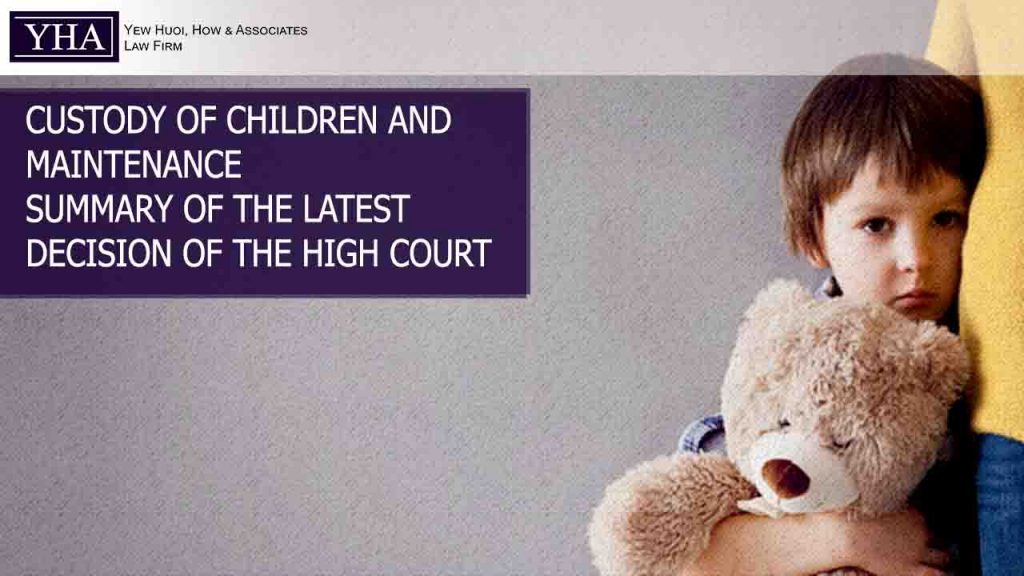CUSTODY OF CHILDREN AND MAINTENANCE – Summary of the latest decision of the high court
Khoo Boon Chin v Alice Tan Ling Mei [2020] 7 MLJ 437
- The petitioner (“the husband“) filed a petition against the respondent (“the wife“) to end a marriage of 11 years. They have 2 children, a daughter (11 years old) and a son (4 years old)
- Reason of divorce: Marriage had irretrievably broken down. The wife was a highly strung person with a short temper, erupted in bouts of violence which had been directed to the daughter and accused the husband of having an affair.
- The wife sought for:
i) Custody of both children / alternatively custody of the son;
ii) An order for sale of the 2 matrimonial properties and the proceeds to be divided equally; and/or
iii) The husband to pay a lump sum of RM30,000 as maintenance.
Whether the wife is entitled to custody of both children?
No.
- The wife was the cause of the daughter’s psychiatric condition. Since the daughter was terrified of her mother, it was not safe for her to be in the mother’s custody.
- The son was not of an age to express an independent opinion on whether he wishes to be in the mother’s custody.
- The welfare of the children is the paramount consideration. It would be disruptive to separate both of the children since they are now in a stable environment of family life and school.
- The wife works late hours (8pm – 4am) at karaoke places and bars where alcohol is available and is unable to control her emotions especially when she was drunk.
Whether matrimonial property subject to division?
No.
- No evidence to show that the wife had contributed towards the deposit / purchase price of the 1st property.
- The wife could not identify the location of the 1st property.
- 2nd property was acquired before marriage. The wife had not done any ‘substantial improvement’ to the 2nd property (‘substantial improvement’ DOES NOT include payment of maintenance fees, electricity, water bills and other utilities).
Whether the wife is entitled to lump sum of maintenance?
No.
- The wife did not file any reply or pleadings in the petition. This shows that the wife was not serious in pursuing the claim of lump sum maintenance. The demand for maintenance is an afterthought.
- The offer by the husband to pay the wife a sum of RM30,000 by way of instalments (RM500 per month) is a fair and reasonable offer.

